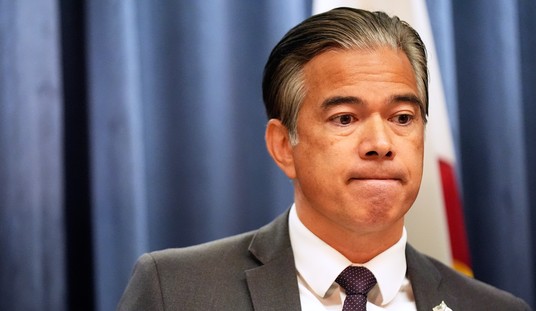As Republicans in the House fight to repeal ObamaCare, the administration and its allies have fought back by claiming that ending the health-care law will increase the deficit. They point to final CBO scoring which showed a slight reduction in deficits over the first ten years of the program. Today, two former CBO officials and a former OMB official rebut that argument, claiming that the use of budgetary gimmicks in the final CBO scoring and one assumption in particular covers up the fact that ObamaCare will balloon the deficit rapidly rather than shrink it. Repeal, they write in the Wall Street Journal, is the “logical first step” in ending the deficit:
Federal finances are buckling under the weight of unaffordable entitlement programs. So what is the primary aim of the ACA? Open-ended entitlement expansion: to more people at greater expense than anytime since the 1960’s. If CBO is right, 32 million people will be added to the health entitlement rolls, at a cost of $938 billion through 2019, and growing faster than the economy or revenues thereafter.
How, then, does the ACA magically convert $1 trillion in new spending into painless deficit reduction? It’s all about budget gimmicks, deceptive accounting, and implausible assumptions used to create the false impression of fiscal discipline.
For starters, that $1 trillion price is a low-ball estimate, covering only six – not ten – years of subsidies that don’t begin until 2014. The uninsured were clearly less of a priority than the deception of making the law look less expensive than it really is over its first decade. Over ten years of full implementation, it’s more like $2.3 trillion. …
The fantasy of deficit reduction from the ACA is also built on a $410 billion tax increase over the coming decade, and a flood of revenue in the years after built on cynically replicating the flawed AMT-style revenue creep. New Medicare taxes initially apply only to individuals with incomes over $200,000 and couples with incomes above $250,000. But those income thresholds do not rise with inflation, so more and more families will pay them each year. Similarly, the new “Cadillac tax” on expensive insurance applies to premiums for family coverage above $27,500 in 2018, but that threshold will rise with general inflation, not medical costs. It’s particularly noteworthy that this tax is instrumental to the claim of deficit reduction in the second decade, but it is so controversial that Barack Obama was never willing to collect it himself. Overall, CBO says the ACA’s tax hikes will reach 1.2 percent of GDP in 2035, or a whopping $180 billion annually in today’s terms.
So, even if CBO’s analysis were flawless, the authors of the ACA guaranteed a misleading bottom line. Their legislative prescriptions were written to create deficit reduction only on paper — not in reality.
All of this came out in the debate over ObamaCare over the last two years, so none of this is exactly new. In fact, the White House argument has mainly been that a repeal would roll back the hundreds of billions of dollars in taxes included in the bill, which will make the deficit worse. But that premise relies on the static tax analysis conducted by Congress and the CBO on taxes such as the so-called “Cadillac plan” tax. Instead of actually collecting those taxes, employers and insurance companies will simply eliminate them, and restructure plans to avoid the penalties. That will solve one problem, that of overuse of medical resources, but leave the government short on its revenue estimate by nearly $260 billion over ten years — and that’s just one example.
One cannot reform entitlement spending by adding more entitlements and expanding those already in existence. ObamaCare does both. If anyone thinks that this somehow results in deficit reduction over the long term, they haven’t paid attention to the trajectories of Medicare and Social Security over the last few decades.
Update: Title should have read “Repealing ObamaCare.” I’ve fixed it, and my apologies for letting my 2012 Freudian slip show.








Join the conversation as a VIP Member